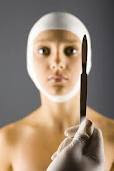The Dangerous New World of Cosmetic Surgery
Plastic surgery used to be the exclusive domain of the rich and (sometimes) famous. Now, it’s attainable for almost anyone, thanks in part to the explosion in lower-cost cosmetic practices helmed by doctors from other specialties. But just because women can get cosmetic surgery from their internist or OB doesn’t mean they should. "Anyone can call themselves a cosmetic surgeon, with very little training," says Joseph Serletti, MD, chief of plastic surgery at the University of Pennsylvania. "It doesn’t mean they have the qualifications to perform surgery safely." Felmont Eaves, MD, a plastic surgeon in Charlotte, North Carolina and immediate past president of the American Society for Aesthetic Plastic Surgery (ASAPS), says, "Doctors who are not board-certified surgeons are one of the biggest dangers in this field."
The Dangerous New World of Cosmetic Surgery
A board-certified plastic surgeon must undergo at least five years of specialized surgical training post–medical school. Doctors must then pass both oral and written exams and fulfill ongoing continuing-education requirements. "It should be the minimum of what you want from your surgeon," Dr. Zins says.
Yet none of that training is required by law. In most states, anyone with a medical license can perform cosmetic surgery. The results can be catastrophic. Dr. Serletti says he and colleagues have seen patients come in with improperly placed breast implants and damaged facial muscles after going to poorly trained doctors. And yes, people do die: A recent German study of liposuction deaths concluded that lack of surgical experience was a major contributing factor. In July, Arizona internist Peter Normann, MD, was convicted of second-degree murder and manslaughter after three patients died in his care, two after liposuction and the third after a botched fat-shaping procedure.
New World of Cosmetic Surgery
Gregory Alouf, MD, is one physician who created his own route to cosmetic surgery. Dr. Alouf, a family practitioner in Salem, Virginia, opened an "aesthetics" practice in 2004, offering non-surgical procedures such as laser hair removal. In 2006 he began doing liposuction, followed by breast implants and other surgical procedures. According to a reprimand issued last February by the Virginia Board of Medicine, Dr. Alouf learned the techniques primarily at medical conferences, where there was minimal hands-on experience.
Two years after he started offering liposuction, Dr. Alouf performed lipo on an obese 29-year-old woman—someone the Virginia Board of Medicine stated "was not a suitable candidate for such surgery" due to her weight. Three other lipo patients experienced complications, resulting in hard and lumpy areas and "visible contour irregularities." (Dr. Alouf claims that those are the only complications he has had in more than 500 liposuction procedures.) In 2009, during a seven-hour mini-face-lift, Dr. Alouf’s 52-year-old patient started bleeding uncontrollably from her incisions. The doctor had her sit up and applied pressure to the site while he called a plastic surgeon friend for advice. As a result of these cases, the Virginia Board of Medicine ordered Dr. Alouf to stop all "full incisional" surgical procedures, stating that he "lacks the requisite education, training, experience, knowledge, skill, expertise and competence to perform such surgery."
Dr. Alouf says the issue is not competence, but competition. "I have more liposuction training than a lot of cosmetic surgeons," Dr. Alouf says, adding that he’s never had a patient die, and none has ever filed a malpractice suit against him. "It all comes back to a turf battle," he says. "Plastic surgeons are defensive because there’s a lot of money involved, and they have very cleverly couched this as an issue of public safety to choke out the competition."
credits:www.health.com


No comments:
Post a Comment